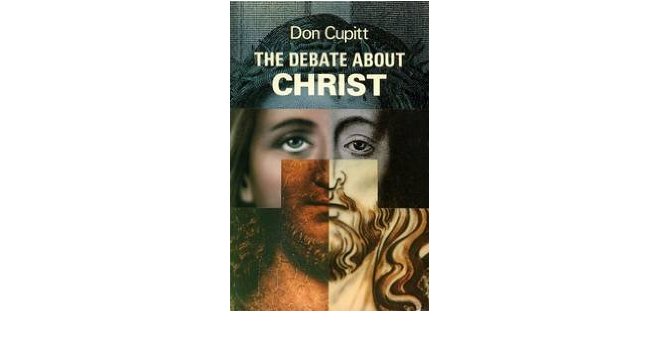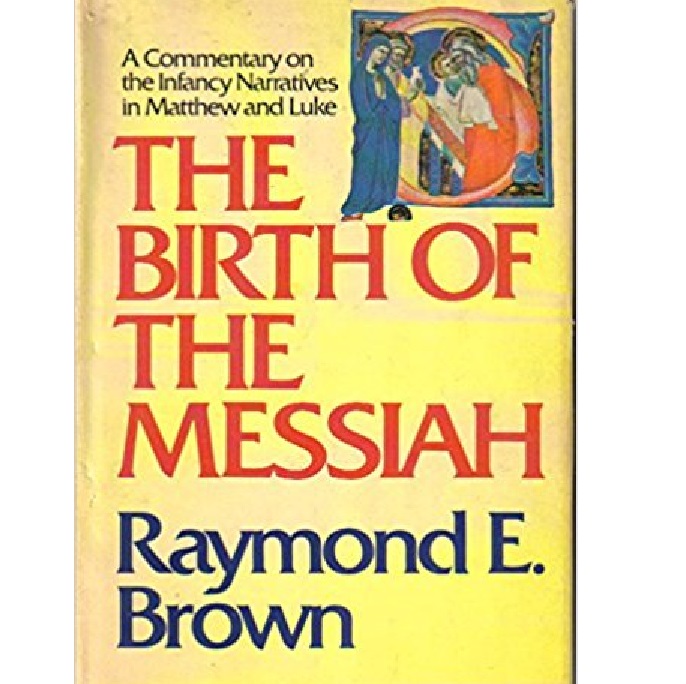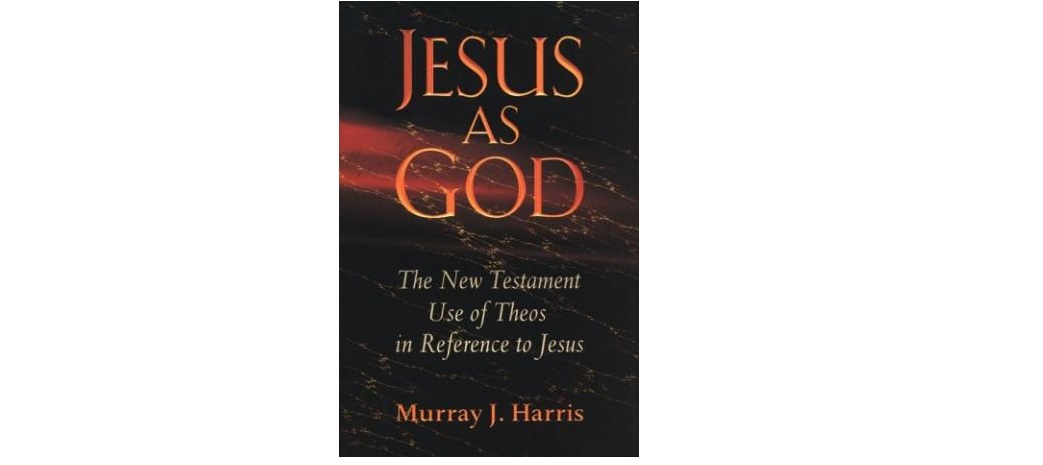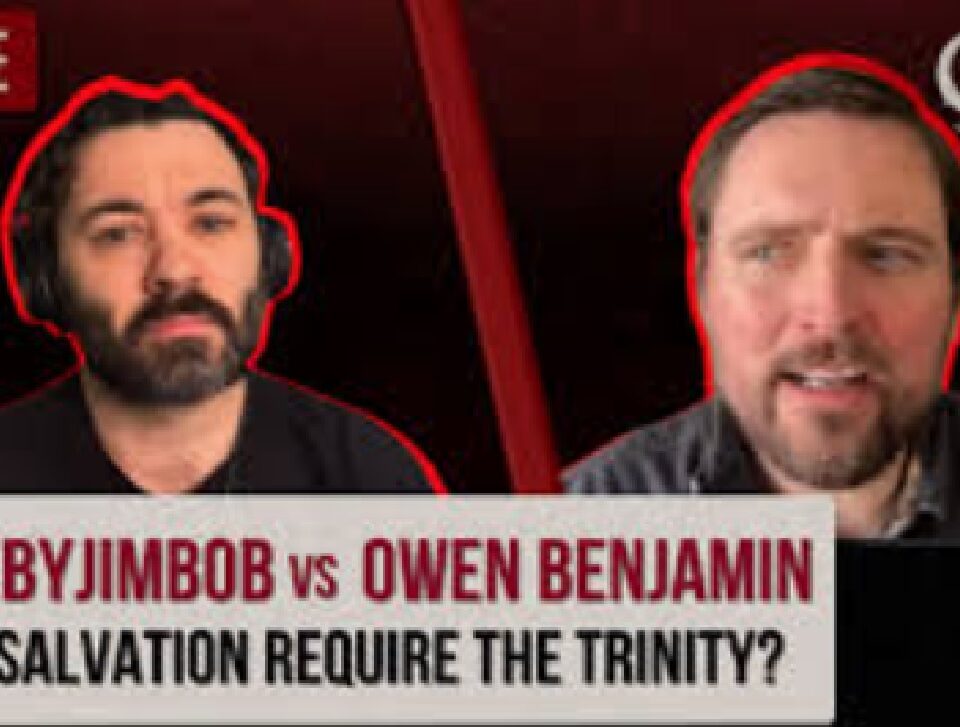
Don Cupitt: The Debate About Christ (1995)
June 2, 2017
The Birth of the Messiah
July 3, 2017Jesus as God. The New Testament Use of Theos in Reference to Jesus

Murray J. Harris
It was not the Triune God of Christian theology who spoke to the forefathers in the prophets….. It would be inappropriate for Elohim [2,570 times] or Yahweh [6,800 times] ever to refer to the Trinity in the OT when in the NT theos regularly refers to the Father alone and apparently never to the Trinity. (fn. 112, p. 47)
No attempt has been made in the preceding summary to be exhaustive. But we have seen that throughout the NT (o) theos is so often associated with and yet differentiated from kurios Yesous Christos that the reader is forced to assume that there must be a hypostatic distinction and an interpersonal relationship between the two. The writers of the New Testament themselves supply the key by speaking not only of o theos and Yesous but also of Pater (Father) and Uios (Son), of the Son of God and of the God and Father of our Lord Jesus Christ. God is the Father (in the Trinitarian sense), Jesus is the Lord (I Cor 8:6). When o theos is used, we are to assume that the NT writers have o pater (the Father in mind unless the context [twice for certain] makes this sense of o theos impossible. [Footnote]:
A related question demands brief treatment. To whom did the NT writers attribute the divine action described in the OT? To answer ‘the Lord God’ is to beg the question for the authors of the NT wrote of OT events in the light of their trinitarian understanding of God {Yet above he just said God never refers to the Trinity]. A clear distinction must be drawn between what the OT text meant to its authors and readers and how it was understood by the early Christians who lived after the advent of the Messiah and the coming of the Spirit.
Certainly the person who projects the Trinitarian teaching of the NT back into the OT reads the OT through the spectacles of the dynamic trinitarian monotheism of the NT is thinking anachronistically. On the other hand it does not seem illegitimate to pose a question such as this:
To whom was the author of Hebrews referring when he said (1:1) “At many times and in various ways GOD spoke in the past to our forefathers through the prophets”? That it was not the Holy Spirit in an ultimate sense is evident from the fact that neither in the OT nor in the NT is the Spirit called “God” in so many words. And, in spite of the fact that the Septuagint equivalent of YHVH, viz. kurios, is regularly applied to Jesus in the NT so that it becomes less a title than a proper name, it is not possible that o theos in Heb 1:1 denotes Jesus Christ, for the same sentence (in Greek) contains “(The God who spoke…) in these last days has spoken to us in a Son (en uio).
Since the author is emphasizing the continuity of the two phases of divine speech (“God having spoken, later spoke”), this reference to a Son shows that o theos (God) was understood to be “God the Father.” [no one ever said God the Son].
Similarly, the differentiation made between o theos as the one who speaks in both eras [throughout the entire Bible] and uios (Son) as his final means of speaking shows that in the author’s mind it was not the Triune God of Christian theology who spoke to the forefathers in the prophets.
That is to say, for the author of Hebrews (as for all NT writers one may suggest) “the God of our fathers,” Yahweh, was no other than “the God and Father of our Lord Jesus Christ (compare Acts 2:30 and 2:33; 3:13 and 3:18; 3:25 and 3:26; note also 5:30).
Such conclusion is entirely consistent with the regular NT usage of o theos. It would be inappropriate for Elohim [2,570 times] or Yahweh [6,800 times] ever to refer to the Trinity in the OT when in the NT theos regularly refers to the Father alone and apparently never to the Trinity. (fn 112, p. 47)
Footnote 113, p. 48: In classical Greek to theion often signifies divine power or activity or the divine nature considered generically, without reference to one particular god. There appears to be no NT instance where theos (God) signifies merely to theion (= numen divinum, as in Xenophon, Mem 1:4;18, deity in general, although both Philo (Agric 17) and Josephus (Ant. 14:183; Bell 3:352) use to theion of the one true God of Israel’s monotheism. In Acts 17:29 (see also the reading of D in Acts 17:27 and the addition to Titus 1:9 in miniscule 460) to theion is used of the Deity that is often represented “by the art and imagination of man.” See further Ch. 13. section 1).

